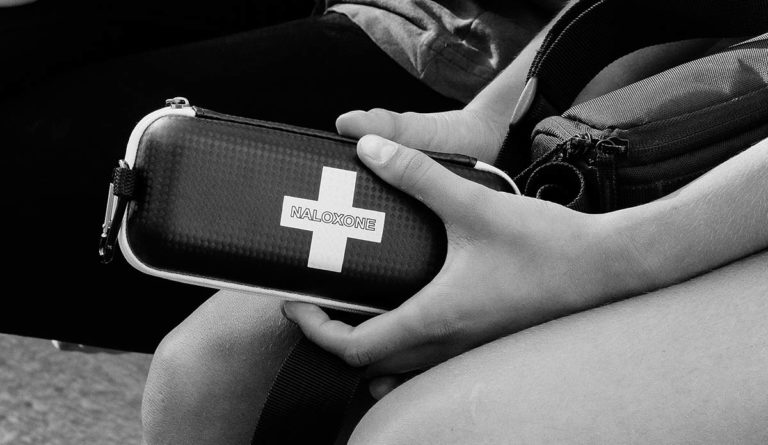Short-term Angels for Opioid Users
A recent study evaluated the Angel Program, one of the first programs in the country to emphasize police-led referrals to substance use treatment before arrest, that continues to be a model for other police departments.

Read Time: 3 minutes
Published:
Opioid use in Massachusetts has reached new heights in the past few years, with the state’s overdose death rate two times higher than the national rate. Nearly 2,000 opioid-related overdose deaths occurred in Massachusetts between September 2016 and August 2017.
The Police Assisted Addiction and Recovery Initiative (PAARI) emphasizes disrupting cycles of arrests by having police refer help-seeking drug users to treatment programs. The nonprofit organization aims to support creative approaches to substance use disorders by police departments, similar to the Angel Program in Gloucester, Massachusetts, where the number of people discharged for substance use is 1.5 times the state average. The Angel Program was one of the first programs in the country to emphasize police-led referrals to substance use treatment before arrest and continues to be a model for other police departments. People struggling with substance use who seek assistance from the police department are referred to care.
Schiff and colleagues studied the development and outcomes of the Angel Program in its first year of implementation, assessing its impact on accessibility of substance use treatment services. Those seeking help turned in any drugs or related paraphernalia, were sent to the local emergency department for screening and evaluation, and were then placed in a treatment program.
Initially, the large number of program participants seeking care overwhelmed the emergency department, so the Angel Program was modified to have hospital staff perform screenings at the Gloucester Police Department. Ultimately, police officers were trained to conduct the screenings themselves, in order to make the process more efficient.
The study found that about 37% of participants maintained sobriety after completing treatment. Although most participants spoke positively about the program, some reported negative experiences.
The researchers evaluating the Angel Program trained PAARI staff to follow up with participants and ask about their experience with the program and their progress. They also asked participants why they enrolled in the Angel Program. The study found that about 37% of participants maintained sobriety after completing treatment.
Although most participants spoke positively about the program, some reported negative experiences. Those who phoned in rather than visiting the police department in person or had a criminal background had more trouble with program placement. Participants who enrolled with the Angel Program multiple times reported barriers to care the second time around, stating that their cases were not given priority or that they were not effectively helped by the program.
Gloucester’s program was successful in presenting a feasible and acceptable police-led, voluntary program, but did not do much to improve access to substance use treatment. Many participants were placed in short-term detoxification programs, but were not able to access longer-term treatment and only long-term maintenance on medication treatment saves lives.
Among returning patients at one opioid detoxification center, 27% relapsed on the day of discharge, and 90% relapsed within a year. A report on another police-led initiative in Illinois emphasized that policy and practice need to focus on continued recovery efforts for those struggling with addiction. The Angel Program may act as a positive first step, but it must also incorporate access to effective long-term treatment options.
Feature image: Province of British Columbia, International Overdose Awareness Day 2017. As part of International Overdose Awareness Day and to help raise awareness of overdose and reduce the stigma of drug-related death, Moms Stop the Harm (MSTH)—a network of Canadian mothers and families whose loved ones have died due to substance misuse—held an event at Centennial Square in Victoria B.C. where they provided on-site Naloxone training, used under CC BY-NC-ND 2.0



